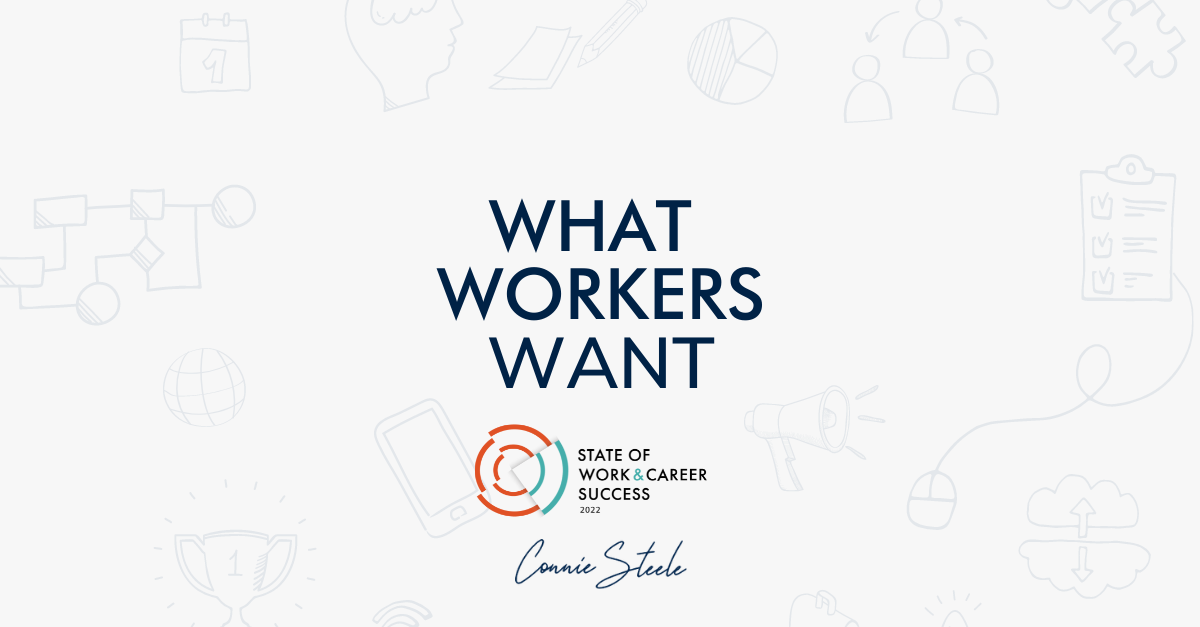The Numbers Are In: Our First Look at The State of Work & Career Success 2022
I began this journey to create the State of Career and Work Success study in 2020 because I had questions I didn’t see any answers to: What does it take to be successful in the new world of work? What holds us back as individuals (not employees) from reaching our goals?
Ultimately, our focus is to establish an ongoing pulse of individuals in the workforce and track their progress towards achieving their work and life goals over time. Do they feel like they have been successful in achieving their goals at this stage of their life or not? And how does this translate to organizational success?
We just got the results back from our second annual survey, conducted near the end of 2021, and it’s a fascinating snapshot of the current state of work — and I think, when you consider these responses were coming in at the peak of The Great Reshuffle, we can see that these last two years have been a tipping point for a lot of people.
People’s Priorities Have Changed
We found that less than half of U.S. workers are satisfied with where they are with respect to the progress they are making in their career, the current position they are in, or the compensation for that position.
And we think this sentiment highlights why so many are choosing to make a change in their careers during the pandemic. Especially when you consider that, in every demographic surveyed, people do not rank wealth as their primary goal.
We asked survey respondents to rank their top three most important life goals. And what people want out of life, first and foremost, is to be able to spend time with family; 56% of those surveyed ranked that as their top priority. This was followed by leading a fulfilling life and getting the most out of life.
Creating wealth and being prepared for retirement are still important life goals for about one third of workers, but they are prioritized significantly less and less often than family or fulfillment.
We also asked survey respondents to rank their top three career goals. And while earning a steady income comes in first (39%), U.S. workers also prioritize doing work that is meaningful (28%) and being in a field where they can channel their passion (25%).
This reflects a mindset shift in the workforce where purpose, passion, AND pay are the focus of today’s worker — not just money.
Why Does Individual Work & Career Success Matter for Organizations?
Success is like dominoes. One small success can lead to another, and another and another. But if you weren’t set up properly, if you fall short, inertia takes control.
A lot of leaders and organizations may not see it as their responsibility to help foster personal success — they’re there to drive results.
But our survey shows that when individuals feel successful with the progress they are making in their career, it not only positively impacts their personal and professional goals but also influences their likelihood to stay with their company, be committed, and even recommend it to others.
Only 29% of those who feel unsuccessful when it comes to their career progress respond that they plan to stay at their current job. This is in contrast with 64% of those who feel highly successful with their career progress. And we see very similar responses when it comes to recommending the organization and commitment to the organization.
And this is what I really want leaders to understand — most of your people already feel like their work, career, and personal life are linked. So you have to take responsibility for all of that if you want these workers to stay and give you their best.
Still not convinced that a change is necessary? Well, more than half of the people we surveyed agree that their professional ambitions aren't tied to being part of a company, with 71% of those who self-identify as being highly successful agreeing. So if you want to retain the best people, you have to give them something that makes them feel successful in their life and career.
If you aren’t willing to invest in people, they’ll probably move on to something else.


